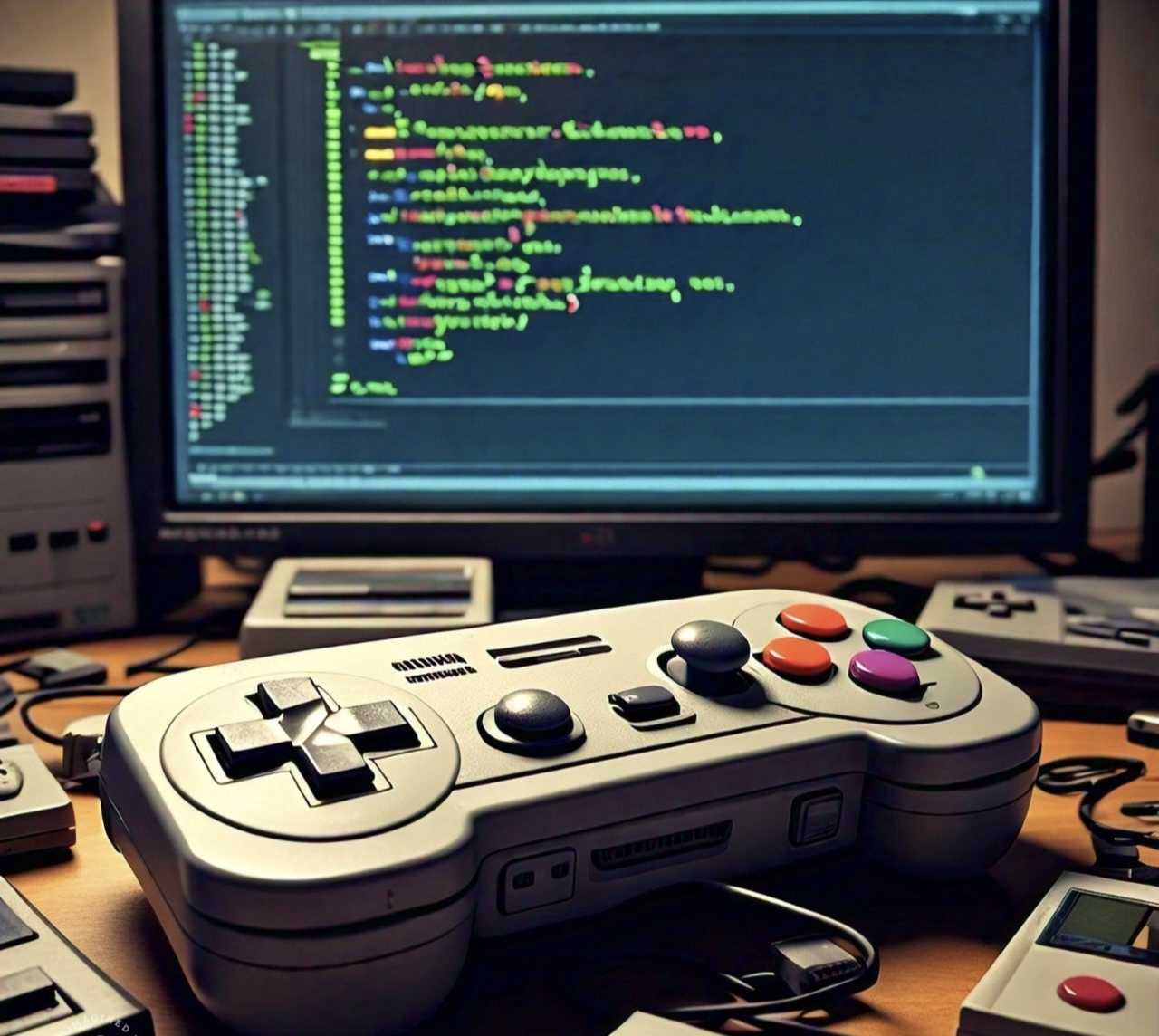
In the digital age, the term “emulators” has become increasingly familiar, especially among tech enthusiasts, gamers, and developers. But what exactly are emulators, and why are they so significant? This blog post delves into the world of emulators, providing a clear and comprehensive overview that is both informative and easy to understand.
What is an Emulator?
An emulator is a software program that allows one computer system (the host) to mimic the functions of another computer system (the guest). In simpler terms, it enables a device to run applications and programs designed for a different operating system. Emulators are widely used for various purposes, from running old video games on modern PCs to testing mobile apps.
Key Functions of Emulators
- Compatibility: Emulators bridge the gap between different operating systems, allowing users to run software or games that would otherwise be incompatible with their current device.
- Testing: Developers use emulators to test applications across different platforms without needing physical devices.
- Preservation: Emulators help preserve old software, particularly video games, by enabling them to run on modern hardware.
Types of Emulators
Emulators come in various forms, each designed to emulate different systems and serve different purposes. Here are some of the most common types:
1. Console Emulators
Console emulators allow you to play games from consoles like the NES, SNES, PlayStation, and more on your PC or smartphone. Popular examples include:
- Dolphin Emulator: Emulates GameCube and Wii games.
- PCSX2: Emulates PlayStation 2 games.
- RetroArch: A versatile emulator that supports multiple gaming systems.
2. Mobile Emulators
Mobile emulators replicate mobile operating systems, allowing you to run Android or iOS apps on your computer. These are especially useful for app developers and testers. Popular mobile emulators include:
- BlueStacks: Emulates Android apps on Windows and macOS.
- NoxPlayer: Another powerful Android emulator for gaming.
- iPadian: Emulates iOS on Windows.
3. Operating System Emulators
These emulators allow you to run different operating systems on your PC. This is useful for developers, testers, and anyone who wants to experiment with different OS environments without altering their main system. Examples include:
- VMware: Emulates multiple operating systems like Windows, Linux, and macOS.
- VirtualBox: A free, open-source emulator for various operating systems.
- QEMU: A generic and open-source machine emulator and virtualizer.
How Do Emulators Work?
Emulators work by replicating the hardware and software environment of the guest system within the host system. This involves translating instructions from the guest system to be executed on the host system. Here’s a simplified breakdown of the process:
- CPU Emulation: The emulator replicates the CPU of the guest system, translating its instructions into instructions that the host CPU can understand.
- Memory Management: The emulator mimics the memory architecture of the guest system, ensuring that memory addresses are correctly translated.
- I/O Emulation: Input/output operations, such as graphics and sound, are emulated to provide a seamless experience.
Advantages of Using Emulators
1. Cost-Effective
Emulators eliminate the need for multiple devices, saving you the cost of purchasing different hardware. For instance, instead of buying old gaming consoles, you can use console emulators to play classic games on your PC.
2. Convenience
Emulators offer the convenience of running various systems and applications from a single device. This is particularly beneficial for developers who need to test apps across multiple platforms.
3. Preservation of Legacy Software
By using emulators, you can preserve and enjoy old software and games that are no longer available on modern systems. This is crucial for historical preservation and nostalgia.
Disadvantages of Using Emulators
1. Performance Issues
Emulators often require significant processing power, which can lead to performance issues, especially on lower-end hardware. The emulation process can be demanding, causing slowdowns and lag.
2. Compatibility Problems
Not all applications and games run perfectly on emulators. There can be compatibility issues, especially with more complex software, leading to crashes or bugs.
3. Legal Concerns
Using emulators can sometimes involve legal issues, particularly when it comes to emulating proprietary systems and software. It’s essential to understand the legal implications and ensure you are not violating any laws.
Popular Emulators and Their Use Cases
Here, we’ll explore some popular emulators and how they are commonly used:
1. Dolphin Emulator
Use Case: Emulates GameCube and Wii games on Windows, macOS, and Linux.
Features:
- High compatibility with most GameCube and Wii games.
- Enhanced graphics options, including 4K resolution support.
- Online multiplayer for certain games.
2. BlueStacks
Use Case: Emulates Android apps on Windows and macOS.
Features:
- Intuitive user interface.
- Integration with Google Play Store.
- Customizable controls for gaming.
3. VMware Workstation
Use Case: Emulates various operating systems for development and testing.
Features:
- Supports multiple operating systems, including Windows, Linux, and macOS.
- Advanced networking capabilities.
- Snapshot functionality for saving and restoring system states.
How to Choose the Right Emulator
Choosing the right emulator depends on your specific needs and the system you want to emulate. Here are some factors to consider:
1. Compatibility
Ensure the emulator supports the applications or games you want to run. Check user reviews and compatibility lists for confirmation.
2. Performance
Consider the performance requirements of the emulator. High-performance emulators may require more powerful hardware to run smoothly.
3. Features
Look for emulators with features that match your needs, such as enhanced graphics, customizable controls, or network capabilities.
Setting Up an Emulator: A Step-by-Step Guide
Setting up an emulator can vary depending on the type and platform. Here, we’ll provide a general guide for setting up a mobile emulator:
Step 1: Download the Emulator
Visit the official website of the emulator and download the installation file. For this example, we’ll use BlueStacks.
Step 2: Install the Emulator
Run the installation file and follow the on-screen instructions to install the emulator on your computer.
Step 3: Configure the Emulator
Open the emulator and complete the initial setup, which may include signing in with your Google account (for Android emulators).
Step 4: Install Apps or Games
Use the built-in app store or sideload APK files to install the apps or games you want to run.
Step 5: Customize Settings
Adjust the emulator’s settings, such as graphics and controls, to optimize performance and enhance your experience.
Legal and Ethical Considerations
While emulators are legal, the use of certain ROMs (the software of the games) may not be. It’s crucial to ensure that you own the original copies of the games or software you plan to emulate. Piracy is illegal and unethical, and it’s important to respect intellectual property rights.
Tips for Ethical Emulation
- Own the Original: Only emulate software for which you own the original copy.
- Use Open-Source Emulators: Prefer open-source emulators, which are developed and maintained by the community.
- Avoid Piracy: Do not download or distribute illegal copies of software or games.
Future of Emulators
The future of emulators looks promising with advancements in technology. Here are some trends to watch out for:
1. Increased Accuracy
Emulators are becoming more accurate in replicating the original systems, providing a more authentic experience.
2. Improved Performance
With the continuous improvement of hardware, emulators are likely to run more smoothly, even on lower-end devices.
3. Enhanced Features
Future emulators may offer new features, such as better graphics, cloud-based emulation, and improved multiplayer capabilities.
Conclusion
Emulators play a crucial role in bridging the gap between different operating systems and preserving old software. Whether you’re a gamer looking to revisit classic games or a developer testing apps across platforms, emulators offer a versatile and cost-effective solution. By understanding how emulators work, their advantages, and the ethical considerations involved, you can make the most of this powerful technology.
For more detailed information on emulators, you can refer to this Wikipedia page on emulators.
This comprehensive guide aims to provide you with everything you need to know about emulators. Feel free to explore and experiment with different emulators to find the ones that best suit your needs.
Also read more on Wcco







